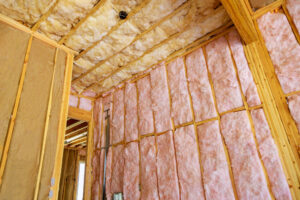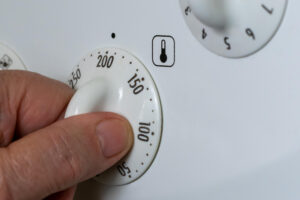Last updated on March 10th, 2024 at 03:39 pm
Let’s face it – any time is the right time when it comes to saving money!
You may think of utility savings in the colder winter months, when you see your first high heat or gas bill.
But the truth is, saving money on utilities, whether it is natural gas, electricity or water is a year round effort. In any given season, there is always something that can be done which will help your utility bill saving effort. Even if its just preparation work, the key to saving money on utility bills is to work smarter, even in the “off season.”
Here’s some seasonal items you should watch out for.
Spring
Spring is the time of year which the weather begins to take a turn for the better. Plants begin growing again, and many people see the green of their lawns for the first time in months.
Before you take off your winter protections like plastic on the windows or your storm windows and doors, however, make sure the threat of the last frost has already passed. You certainly don’t want to remove cold weather protection from your house too early.
It is tempting to open windows and let the first fresh breeze flow through the house. A word of caution – make sure you have the heat off before opening your windows. The number one common energy mistake is forgetting to turn off the heat before opening windows in the spring. You never want to have the heat running while windows are open.
Once the winter protections do come down, clean them as soon as possible, as part of spring cleaning. Wash and hose down the storm windows, and re-wrap and store any insulation plastic you may have placed on windows or doors. Carefully inspect the plastic. If it is torn or ripped, throw it away. There’s no sense in keeping it around. (Many plastic coverings you buy at a store like Home Depot or Lowe’s are one usage only anyway…)
While you’re cleaning, take inventory of what you throw away. These items will need to be purchased again in the fall in preparation for the cold season. This way, you’ll have a leg up by already knowing what you need.
Finally, if you’re considering planting in the yard, strategically place your plants to assist in th e heating and cooling of your home. More information on the increasing importance of landscaping is discussed later in this e-book.
Spring is a time of transition – basically you’re preparing your home for warmer weather. If you have an Air Conditioning unit, now is the time to inspect it ans ensure it functions properly. There’s nothing worse than having a malfunctioning AC unit in the summer heat!
If you are comfortable, when you are confident you no longer need heat extinguish the pilot light on your furnace. Just to be safe, I’d wait to do this until closer to summer.
And draw back those curtains to let in the sun! Let the solar rays shine through your window and heat the room, or close the curtains to keep the heat out. This will become increasingly more important during the warm months ahead. Might as well get a head start on it now!
Soaking spring rains should reduce or eliminate the need to water gardens or lawns. Take advantage of this now and don’t over water. You’ll need to use the water more in the summer to take care of your new and established plants.
Summer
Is it any wonder summer is most people’s favorite season?
What’s not to love – BBQ’s, swimming, picnics, relaxing in the sun…
And its certainly one of the favorite times of year for the thrifty utility bill homeowner as well. In the summer, many people see reduced natural gas costs, since there is no need for heating the house. The only usage is through appliances.
However, everyone needs to watch out for rising electrical and water costs.
If your home has Air Conditioning, make sure you take all steps to keep the cool air in the house. Make sure patio doors and windows are closed when the air conditioning is running. Try not to switch between A/C and letting windows and doors open too often. Remember, the harder the A/C has to work to keep the house at a certain temperature, the more it will cost you.
Try to turn on the A/C as late into the cooling season as possible. In my area, that can be as late as July! And if we have a mild summer, we may not even need any A/C at all. Of course, this may not be true where you live, so use your best judgment.
Take necessary steps as you would in winter to save heat in the summer to save on air conditioning costs. Your goal should be to prevent cooled air from escaping your home. This may mean sealing cracks, windows, doors, etc.
The earlier in the season you catch the problems, the more you will save as the season goes on. And the more comfortable you’ll be!
You’ll also probably see a big increase in your water usage. If you have a pool, you’re probably well aware of the investment it takes to fill and maintain a pool. Aside from the obvious water costs, there’s also the electrical cost associated with running the filter and any lights that my be necessary.
It’s going to be hard to limit the filter usage, unfortunately, since you need to have it running a lot to keep the water clean. Unclean and unfiltered water is dangerous and unhealthy, so don’t skimp on the cost.
Only use the lighting when absolutely needed. Put them on photoelectric cell timers. These cells are light sensitive – they can be setup so they only turn on in the dark or dusk.
Don’t turn on the lights until absolutely needed. Take advantage of increased daylight as much as possible.
Even if you don’t have a pool, your water usage will increase. For example, mine increases by about 4 to 6 times the normal amount. Water is used in everything from making beverages to watering plants and the yard.
Keep careful track of your water usage. When it comes to watering the lawn and plants, don’t over water. Make sure you water at the most opportune times when water won’t be wasted. If you receive a good soaking rain, try to abstain from watering for a couple of days, if possible.
You may want to keep track of the days it rains on a calendar, then plan your watering schedule accordingly. Remember, the key to cutting down on your water bill is to use less of it – plain and simple.
Fall
As in spring, fall is a time for transition.
Even though the air becomes colder, many people wait until the first frost or later to prepare for cold weather!
As soon as September is over in most areas, you should start preparing for the colder winter months ahead.
Remember the lists we made in spring of all the items you need? Now’s the time to go get them. Take your cold weather windows, doors and plastics out of storage and give them an inspection to make sure they weren’t damaged in the off season.
Don’t turn on the heat too early, if possible. And remember to close and lock your windows when you do turn the heat on. A locked window provides a much tighter seal and will prevent more warm air from seeping outside.
Do a quick heat audit every year in the fall, before the severely cold weather begins. The sooner you find and fix problems, the more you will save since you will have lost little or no heat. Think about it – would you rather find a fix a problem in October or February? If you find it in October, you may have only had the heat going for a few weeks. But if you found it in February, you’ve already had the heat on for at least a few months, and have wasted a lot of it.
If you have time (and money) fall is a great time to get your furnace inspected. Call a professional and have them come out and inspect the furnace and heating system. This way, if there are any problems that need fixing, they can be addressed early in the season before you start using a lot of heat.
If you have a fireplace, now is the time to make sure it is cleaned and in tip top shape for the cold season, especially if you plan on using it.
You should also notice a marked decrease in your water usage from the warmer summer months.
You’ll also notice you’re using indoor lights more, because you’re spending more time indoors and it seems to be getting dark sooner. Keep in mind the simple tricks, like turning off lights not in use, that are taught in this e-book and you’ll go far.
Winter
This is where a lot of people want to reduce their utility bills.
Electric bills are high because of increased light usage, so its very important to concentrate on conserving electricity. Use as many tips as possible to reduce your electricity usage.
And of course, there’s the heat.
By now you probably have the furnace on most of the time. And the heat audit you did in the fall should have picked up the major holes, which you fixed immediately. Don’t relent, however, if you find a new problem. Fix it as soon as possible. Every day you let something slide is another day you could be wasting money.
Again, use as many heat and gas savings tips in this e-book as you can to keep your heating and gas costs low.
The more you do in the fall, the less you have to worry about in winter. Make sure all your windows are locked, and sealed. Make sure you put up your plastic and storm windows as early as possible.
If you put up Holiday lights, mind the example later in this e-book and stick to your schedule. It is absolutely possible to have a blast during the holidays and still save a lot of money doing it. Keep the lights on a timer, and don’t keep them on all night. Take them down as soon as the holidays are over so they don’t use any more electricity.



Ooh dang! i just typed a very long comment and as quickly as i hit reply it sprang up blank! Please tell me it worked properly? I do not want to sumit it all over again if i do not have to! Either the blog bugged out or i am an idiot, the second option doesnt surprise me lol.
Glenda B. G